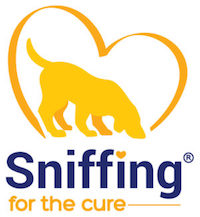You just got a new puppy—congratulations! This is such an exciting and amazing time for both you and your new furry friend. However, there are always challenges that come with raising and training a puppy, and puppy teething is unfortunately no exception. As early as two weeks old, a puppy will begin to grow its baby teeth, which can be a painful process for both your puppy and you.
So, what is puppy teething, and how can you help your pup (and yourself) get through it? Below I’ve listed five essential things you should know about puppy teething and some tips that can help make your pup feel better during the process!
1. All puppies are different, but most puppies start losing their baby teeth around three to four months.
Just like babies, all puppies are different, and some will lose their baby teeth earlier than others! Typically, the process of a puppy losing all of its baby teeth takes around two to three months. If you notice it is taking longer, you may need to go see your vet to get the last of your puppy’s baby teeth safely removed.
By approximately six months, your puppy should start growing in their adult teeth. This process takes about a month, and by about seven months old, your puppy should have 42 adult teeth! Yay, adulthood!
2. Puppy teething can be painful.
Similar to a human baby, teething for puppies can hurt! However, the good news is that there are ways to relieve your pup from some of the pain that they may be experiencing.
Cool sensations can help numb the pain when your puppy is teething, so try running an ice cube over your pup’s gums to alleviate the pain! You can also try throwing their favorite chew toy in the freezer for a bit and then give it to your pup to gnaw on.
3. Your puppy is going to nip and chew at anything they can get their little paws on.
Unfortunately, when a puppy is teething, they’re going to want to chew on everything. Make sure that you have enough chew toys for your pup to play with so that they don’t chew on something else (like furniture, pillows, shoes, or literally anything else)!
Some of my favorite chew toys that are specific for puppy teething are the KONG Puppy Teething Stick Dog Toy and the Nylabone Chill & Chew Freezer Chicken Flavored Dog Toy, but any puppy chew toys work! Figure out what toys your pup likes and stick to them.
4. Make sure your pup is eating healthy.
Incorporating a healthy diet for your dog is always essential, but is especially important when your pup is in its early stages of life. During puppy teething in particular, it is crucial that your pup gets the proper nutrients and vitamins that it needs to ensure that its teeth grow in safely and normally. Calcium is an especially important vitamin your puppy will need! One of my favorite puppy dog foods that has a ton of good nutrients is the Blue Buffalo Life Protection Formula Puppy Chicken & Brown Rice Recipe Dry Dog Food.
Another important thing to know about puppy mealtime during puppy teething is that your pup may have trouble eating, as their gums will be ultra-sensitive. If this happens, try mixing your pup’s dry food with canned puppy food to make a gentler meal for your teething puppy.
5. Incorporate good hygiene into your puppy’s lifestyle.
Once your puppy’s adult teeth grow in, you may think that all your work is done—but you need to make sure that your puppy is practicing good hygiene! Obviously, dogs can’t brush their teeth by themselves (although that would be a lot easier), so you will need to make sure that you brush your dog’s teeth regularly and well.

Fortunately, dogs don’t need their teeth brushed as frequently as humans. Your dog’s teeth should be brushed around one to two times a week, or depending on when you think your pup needs it. Starting the habit of brushing your puppy’s teeth early gets them used to the habit and also helps prevent the build-up of plaque, stinky breath, and other oral problems over time!





No Comments